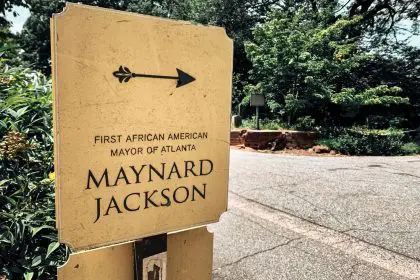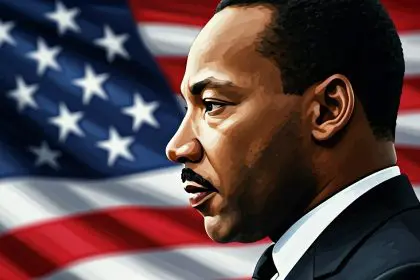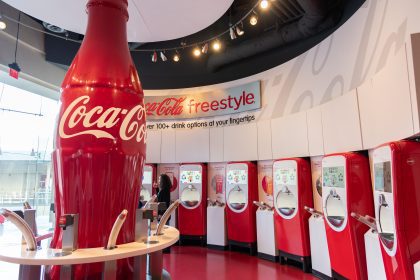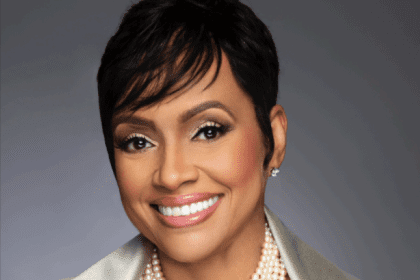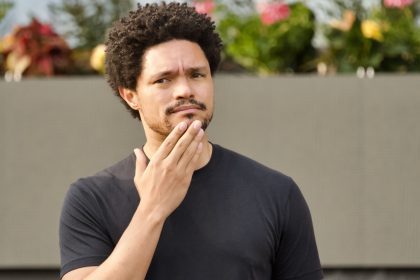
Every January, Americans celebrate the life and legacy Dr. Martin Luther King Jr. The civil rights icon is one of the most important figures of the 20th century — an eloquent, passionate and committed man who forced this country to confront its own hypocrisy and helped galvanize his people as they were demanding change. But for too many, King’s legacy is reduced to the March on Washington and a few blurbs from his iconic 1963 “I Have a Dream” speech.
In the past year, as Bblack people have launched a contemporary movement against police brutality and state-sanctioned murder of Blacks by officers charged with policing Black communities; many detractors have tossed out Martin Luther King’s name as a way of shaming the young people guiding this modern movement. Whether dismissing the Black Lives Matter movement as “not having a leader,” or using instances of looting as an opportunity to shame protesters with the charge that they should “be nonviolent like Martin Luther King,” America has shown that it never really understood who and what Martin Luther King Jr. really stood for.
So, this year, as we recognize the man — let’s look beyond his “Dream,” and praise the true scope of his vision. Here are some lesser-known quotes from Dr. Martin Luther King Jr. that should always be included when discussing his legacy:
MLK addressing Cesar Chavez and the plight of Latino farm workers:
“You stand today as a living example of the Ghandian tradition with its great force for social progress and its healing spiritual powers. My colleagues and I commend you for your bravery, salute you for your indefatigable work against poverty and injustice, and pray for your health and continuing service as one of the outstanding men of America. The plight of your people and ours is so grave that we all desperately need the inspiring example and effective leadership you have given.”
MLK on the immorality of the establishment:
“I have consistently preached that nonviolence demands that the means we use must be as pure as the ends we seek. I have tried to make clear that it is wrong to use immoral means to attain moral ends. But now I must affirm that it is just as wrong, or perhaps even more so, to use moral means to preserve immoral ends.”
MLK on White moderates:
“I must confess that over the past few years I have been gravely disappointed with the white moderate. I have almost reached the regrettable conclusion that the Negro’s great stumbling block in his stride toward freedom is not the White Citizens’ Counciler or the Ku Klux Klanner, but the White moderate, who is more devoted to “order” than to justice; who prefers a negative peace which is the absence of tension to a positive peace which is the presence of justice; who constantly says: ‘I agree with you in the goal you seek, but I cannot agree with your methods of direct action’; who paternalistically believes he can set the timetable for another man’s freedom; who lives by a mythical concept of time and who constantly advises the Negro to wait for a ‘more convenient season.’ Shallow understanding from people of good will is more frustrating than absolute misunderstanding from people of ill will. Lukewarm acceptance is much more bewildering than outright rejection.”
MLK on opposing the Vietnam War:
“Over the past two years, as I have moved to break the betrayal of my own silences and to speak from the burnings of my own heart, as I have called for radical departures from the destruction of Vietnam, many persons have questioned me about the wisdom of my path. At the heart of their concerns this query has often loomed large and loud: ‘Why are you speaking about the war, Dr. King?’ ‘Why are you joining the voices of dissent?’ ‘Peace and civil rights don’t mix,’ they say. ‘Aren’t you hurting the cause of your people,’ they ask? And when I hear them, though I often understand the source of their concern, I am nevertheless greatly saddened, for such questions mean that the inquirers have not really known me, my commitment or my calling. Indeed, their questions suggest that they do not know the world in which they live.
“We have been repeatedly faced with the cruel irony of watching Negro and White boys on TV screens as they kill and die together for a nation that has been unable to seat them together in the same schools.”
MLK on the arms race and American military spending:
“A nation that continues year after year to spend more money on military defense than on programs of social uplift is approaching spiritual doom.”
MLK on the love of Blackness in the face of White supremacy:
“Somebody told a lie one day. They couched it in language. They made everything ‘black’ ugly and evil. Look in your dictionary and see the synonyms of the word ‘black.’ It’s always something degrading, low, and sinister. Look at the word ‘white.’ It’s always something pure, high, clean. Well, I wanna get the language right tonight. I wanna get the language so right that everybody here will cry out ‘Yes I’m Black! I’m proud of it! I’m Black and beautiful!’”
MLK on capitalism:
“One day we must ask the question, ‘Why are there forty million poor people in America?’ And when you begin to ask that question, you are raising questions about the economic system, about a broader distribution of wealth. When you ask that question, you begin to question the capitalistic economy. You begin to ask the question, ‘Why is it that people have to pay water bills in a world that is two thirds water?’
MLK on Western cultural imperialism:
“The Western arrogance of feeling that it has everything to teach others and nothing to learn from them is not just.”

